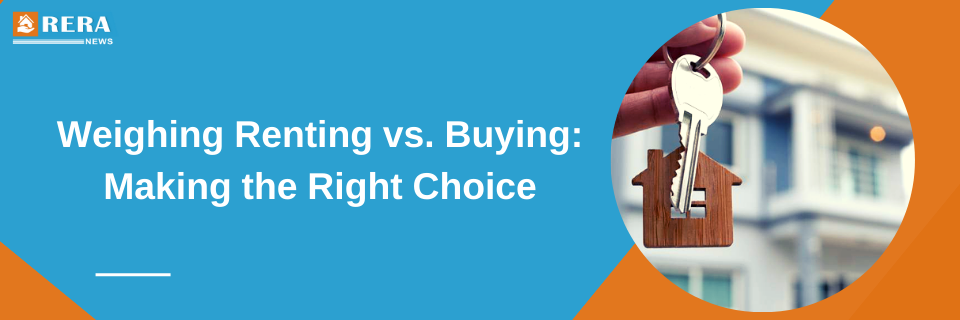
Renting or Buying a Home?
The desire to own a home is a dream shared by many, particularly for first-time buyers. The emotional rollercoaster of excitement and tension involved in this decision can be immense. However, there are those who differ in their preference and choose to rent instead of buying. Renting is often seen as a carefree and cost-effective option. Buying a home is undoubtedly one of the most significant financial decisions for households throughout their lifetimes. Understanding the factors influencing the choice between renting and buying is crucial, as it also impacts non-financial outcomes. This brings us to the inquiry: "Which choice offers greater affordability—renting or buying?"
Buying a Home:
Considering the choice to buy a home, one might ask, "What are you going to do about it?" Are you going to persist in making significant rent payments to your landlord or choose to live with your family indefinitely? Higher homeownership levels have been associated with increased investment in social capital, lower crime rates, and higher real estate prices. Children who grow up in owner-occupied homes have been shown to have better cognitive and behavioral outcomes and achieve higher educational attainment.
Even when comparing households in similar financial situations across countries with similar economic conditions, the differences in the decision to buy versus rent are significant. One of the primary benefits of homeownership is the potential for the home's appreciation, meaning its value is likely to exceed the original purchase price when homeowners decide to sell. Through appreciation and paying down the principal, there should be a net gain over the initial purchase price.
However, the downside comes when the home's value depreciates, meaning it is worth less than its original purchase price. Homeowners are responsible for maintenance and repairs, requiring sufficient savings for unexpected expenses. Ultimately, the decision to own a home or not rests with the individual.
Renting a Home:
For renters, the monthly payment goes toward their landlord as per the rental agreement. Renters must fulfill their financial obligations under the agreement to occupy the home. Unlike homeowners, renters are relieved from bearing the costs of maintenance and repairs, which can be substantial, such as replacing an air conditioner. Renters may opt for renters insurance to protect their belongings. Rental prices can fluctuate over time, both increasing and decreasing, with renters having no control over these changes.
Rental agreements often impose restrictions on making changes or improvements to the rented property. A security deposit is typically required to protect the landlord from damages caused by the renter, and it is refunded upon leaving the home in acceptable condition. Renting offers advantages such as flexibility in relocation and not having to worry about property depreciation.
Deciding to Buy or Rent:
The decision to buy or rent can be visualized on a line, where each point represents an equal choice between buying and renting, resulting in the same financial outcome when selling or moving out. For example, if someone plans to stay in a home for five years and the housing market is appreciating at 1%, buying the home would be a more favorable option as the point lies above the five-year line.
The significant disparity between rental prices and monthly mortgage payments contributes to a favorable buying market. There are several compelling reasons to buy a home rather than rent, but it's essential to carefully consider homeownership before embarking on the home-buying process. Historical data has consistently shown that buying a home is a sound long-term investment.
Currently, the housing market is experiencing rising home prices and a low inventory of available homes. Many first-time homebuyers are waiting for the right opportunity, but waiting too long may result in missing out on affordable home prices. Renting can feel like throwing money away since it offers no return on investment, while homeownership allows for building equity and potential value appreciation.
It is crucial to assess your financial situation and calculate the pros and cons of renting versus buying. Renting can become a trap, as it becomes challenging to save for a down payment while paying rent. By continuing to rent, you may perpetuate a cycle of burning money on increasing rent payments.
In conclusion, individuals should feel more confident about buying a home rather than renting, particularly if the home is sold after ownership, even with little to no appreciation. Researchers suggest that buying is a more cost-efficient option, considering a home's depreciation of approximately 5% compared to renting the same home. If you have decided to buy, consulting with experts like Srigdha Infra Developers can provide guidance on finding the best homes and securing affordable home loans tailored to your budget.
© 2023 Rera News. All rights reserved.